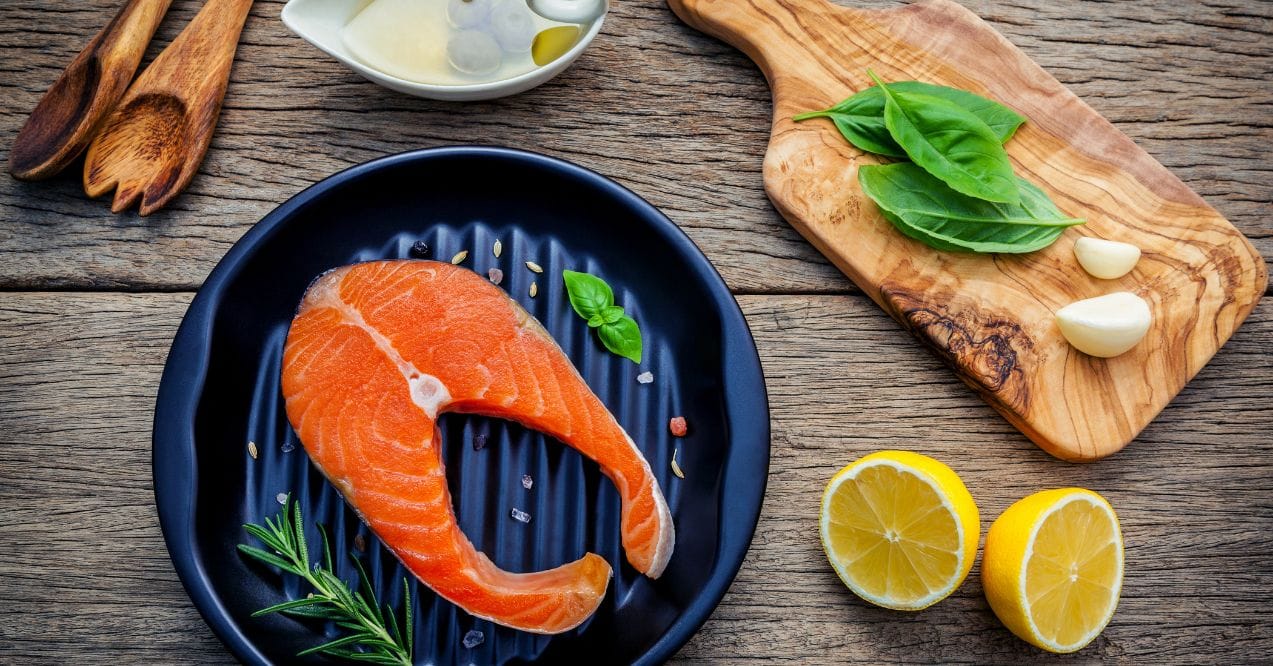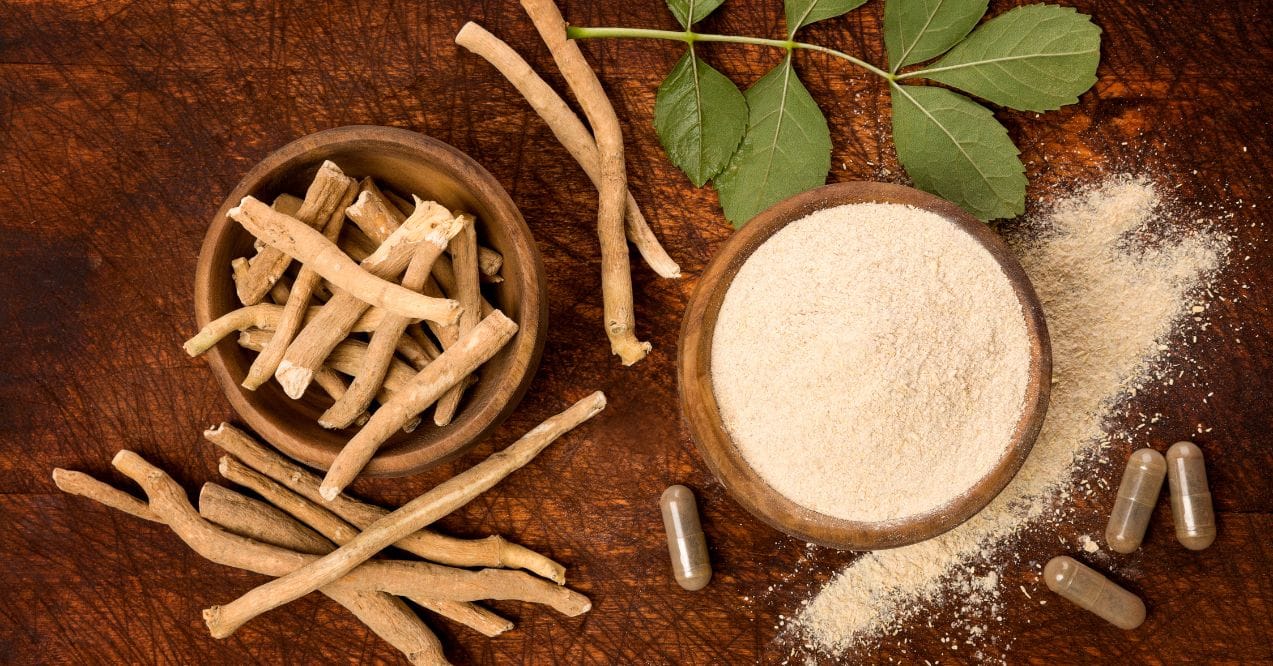10+ Foods That Reduces Cortisol Levels
Medically reviewed by our experts


Which foods reduce cortisol naturally? This question becomes increasingly relevant as chronic stress affects millions worldwide. Cortisol, produced by your adrenal glands, serves as your body’s primary stress hormone and activates the fight-or-flight response during challenging situations.
While cortisol plays an essential role in daily functioning, persistently elevated levels may contribute to weight gain, disrupted sleep, and mood changes. The food you eat directly influences cortisol production and can either support or sabotage your stress management efforts.
The Role of Diet in Reducing Cortisol
The connection between nutrition and cortisol levels runs deeper than most people realize. Every meal you consume triggers hormonal responses that either calm or activate your stress systems. Blood sugar fluctuations, in particular, directly impact cortisol production.
When you eat processed foods high in added sugar, your blood glucose spikes rapidly. This sudden increase forces your body to release more cortisol to manage the imbalance. Over time, this pattern creates a cycle of increased cortisol production that becomes difficult to break.
Nutrient-dense whole foods work differently. They provide steady energy without dramatic blood sugar swings, allowing your adrenal glands to function optimally. Foods rich in specific vitamins, minerals, and healthy fats actively support your body’s natural stress response mechanisms.
10+ Foods That Reduce Cortisol Levels
Fatty Fish
Fatty fish stands out as one of the most effective dietary choices for managing stress levels. Salmon, mackerel, and sardines contain high concentrations of omega-3 fatty acids, particularly EPA and DHA. These essential fats may reduce cortisol production by up to 20% according to some studies.
The anti-inflammatory properties of omega-3s also play a vital role. Chronic inflammation triggers sustained cortisol release, creating long-term stress on your system. Regular consumption of fatty fish, ideally twice weekly, provides consistent omega-3 intake that may help normalize your stress response.
Dark Chocolate
Dark chocolate with at least 70% cacao content offers more than just taste satisfaction. The flavonoids and polyphenols in quality dark chocolate may lower cortisol levels within just two weeks of regular consumption. These compounds work by reducing oxidative stress in the body.
Additionally, dark chocolate contains magnesium and theobromine, both supporting relaxation and mood stability. A small square (about 1 ounce) daily provides these benefits without excessive calories. Choose varieties without added sugar for optimal cortisol-reducing effects.
Bananas
Bananas deliver a powerful combination of nutrients that support healthy adrenal function. Each medium banana provides approximately 400mg of potassium, essential for regulating cortisol production. The vitamin B6 content further supports neurotransmitter production that balances mood and stress response.
The natural sugars in bananas release slowly, preventing the blood sugar spikes that trigger cortisol release. This makes them an ideal snack for sustained energy without stress hormone activation.
Avocados
Avocados excel at reducing cortisol levels through multiple mechanisms. Their high magnesium content, about 58mg per fruit, directly supports adrenal gland function. The monounsaturated fats in avocados also help stabilize blood sugar levels throughout the day.
Potassium, another abundant nutrient in avocados, works alongside magnesium to regulate stress hormones. Half an avocado daily provides these benefits while adding creamy texture to meals. The fiber content further supports steady energy release, preventing cortisol-triggering blood sugar fluctuations.
Green Leafy Vegetables
Spinach, kale, and Swiss chard rank among the most effective foods that raise cortisol when deficient in the diet, but when consumed regularly, they powerfully lower it. These vegetables provide exceptional magnesium levels, with one cup of cooked spinach offering nearly 40% of daily needs. Magnesium acts as nature’s relaxation mineral, calming the nervous system and supporting healthy cortisol rhythms.
The folate in leafy greens also supports mental health by aiding neurotransmitter production. Regular consumption may reduce anxiety and depression symptoms often associated with elevated cortisol.
Probiotic-Rich Foods
The gut-brain connection plays a surprising role in cortisol regulation. Yogurt, kefir, and sauerkraut contain beneficial bacteria that may lower stress hormones through improved gut health. These probiotics influence the production of neurotransmitters that directly affect mood and stress response.
Fermented foods also reduce inflammation throughout the body, another trigger for increased cortisol production. Daily consumption of probiotic-rich foods supports both digestive and mental health simultaneously.
Nuts and Seeds
Almonds, walnuts, flaxseeds, and chia seeds provide concentrated sources of stress-fighting nutrients. The combination of healthy fats, magnesium, and zinc in these foods supports optimal adrenal function. Walnuts specifically contain alpha-linolenic acid, a plant-based omega-3 that may reduce cortisol levels.
A handful of mixed nuts or two tablespoons of seeds daily delivers these benefits. The protein and fiber content also helps stabilize blood sugar, preventing stress-inducing energy crashes.
Berries
Blueberries, strawberries, and raspberries offer powerful antioxidants that combat oxidative stress in the body. This oxidative stress often triggers increased cortisol production as your system attempts to manage cellular damage. The anthocyanins in berries may reduce cortisol levels while supporting overall brain health.
Fresh or frozen berries work equally well, making them accessible year-round. Adding a cup of mixed berries to your daily diet provides vitamin C, another nutrient that may lower cortisol.
Turmeric
Turmeric contains curcumin, a compound with potent anti-inflammatory properties that may significantly reduce cortisol levels. This golden spice works by modulating the stress response at the cellular level. Regular consumption potentially improves mood and reduces anxiety symptoms associated with chronic stress.
Adding black pepper enhances curcumin absorption by up to 2000%. A teaspoon of turmeric daily, whether in cooking or golden milk, provides therapeutic benefits.
Chamomile Tea
Chamomile tea stands out among herbal remedies for its cortisol-lowering properties. The apigenin in chamomile binds to brain receptors that promote relaxation and reduce anxiety. Drinking chamomile tea regularly may improve sleep quality, which directly impacts cortisol regulation.
Two to three cups daily, particularly in the evening, support natural cortisol rhythm restoration. The warmth of the tea itself adds a calming ritual to stress management.
How to Incorporate These Foods Into Your Diet
Meal Planning Tips
Strategic meal planning makes incorporating cortisol-reducing foods simple and sustainable. Start your morning with overnight oats topped with berries and ground flaxseed for omega-3s and antioxidants. Lunch becomes an opportunity for leafy green salads with avocado and grilled salmon.
Evening meals benefit from turmeric-spiced vegetables paired with probiotic-rich fermented foods. Snack times offer chances for almonds, dark chocolate squares, or banana with almond butter. Planning weekly menus ensures you consistently include these stress-fighting foods.
Consider batch cooking fatty fish and roasted vegetables on weekends. This preparation makes healthy choices convenient during stressful weekdays when cortisol management matters most. Keep pre-portioned nuts and seeds readily available for quick, cortisol-lowering snacks between meals.
Avoiding Cortisol-Boosting Foods
While adding beneficial foods, simultaneously reducing cortisol-triggering options amplifies your results. Processed foods laden with added sugar cause rapid blood sugar spikes that increase anxiety and stress hormone production. Replace sugary snacks with whole fruits that provide natural sweetness plus fiber for stable energy.
Excessive caffeine intake may elevate cortisol levels, particularly when consumed on an empty stomach. Consider switching afternoon coffee for chamomile tea or limiting caffeine to morning hours only. Many people find that best natural energy supplements provide sustained energy without the cortisol spike associated with excessive caffeine consumption.
Trans fats and highly processed oils found in fast food also trigger inflammatory responses that raise cortisol. Choose whole food alternatives prepared with olive oil or avocado oil instead. Small dietary shifts create substantial improvements in stress hormone balance over time.
Conclusion
Managing cortisol levels through dietary choices offers a practical approach to stress reduction that anyone can implement. Which foods reduce cortisol most effectively depends on individual needs, but incorporating omega-3 rich fish, magnesium-packed greens, and antioxidant-filled berries provides a solid foundation. These nutrient-dense options work synergistically to support your body’s natural stress response mechanisms.
Long-term commitment to these dietary changes may yield significant improvements in mental health, weight management, and overall well-being. Start with small additions to your current diet rather than dramatic overhauls for sustainable success.
Fatty fish rich in omega-3s, dark chocolate with 70% cacao, and magnesium-rich leafy greens rank among the most effective options. Probiotic foods, nuts, and berries also provide significant cortisol-lowering benefits when consumed regularly.
Omega-3 fatty acids may reduce inflammation and support brain health, both directly impacting cortisol production. They potentially modulate the stress response system, helping normalize cortisol levels and improve mood regulation naturally.
Turmeric’s active compound curcumin may lower cortisol through its anti-inflammatory properties. Regular consumption potentially reduces stress-related symptoms, though combining it with black pepper significantly enhances absorption and effectiveness.
Diets high in processed foods and added sugar may increase anxiety and depression symptoms. Consistently elevated cortisol from poor dietary choices potentially disrupts sleep, impairs focus, and contributes to mood instability.
Most people notice initial improvements within 2-4 weeks of consistent dietary changes. Significant cortisol reduction and stress management benefits typically become apparent after 6-8 weeks of maintaining these nutritional modifications.
FAQ
References



